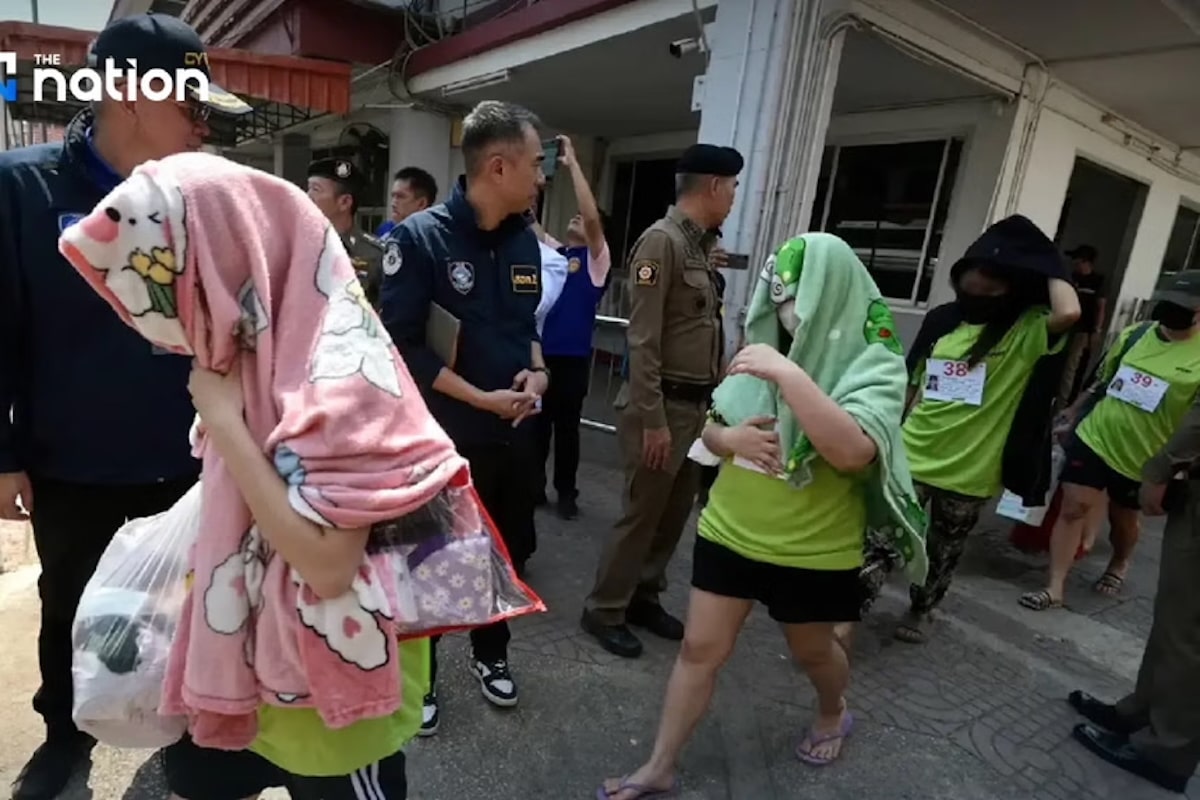Over a hundred Thais repatriated from Cambodia scam center

The group, repatriated on March 1, has been placed under Thailand’s National Referral Mechanism.PHOTO: THE NATION/ASIA NEWS NETWORK
BANGKOK — Thai authorities have deployed over 100 police officers to conduct in-depth interrogations of 119 Thai nationals repatriated from a call center scam operation in Poipet, Cambodia.
The screening aims to distinguish genuine victims from accomplices to prevent those involved from falsely claiming victimhood to evade prosecution. The group, repatriated on March 1, has been placed under Thailand’s National Referral Mechanism (NRM).
Accounts from detainees
During questioning, a 17-year-old girl stated that she had initially traveled with the intent of working for an online gambling website. However, upon arrival, she was reassigned to work as a call center scammer.
READ: Lured to work in ‘scam centers,’ Filipinos pay for freedom or escape
She crossed the border through an unofficial route near a shopping mall in Aranyaprathet, Sa Kaeo province. After crossing, a man picked her up and transported her to an office building before being taken to a dormitory consisting of single-story rental rooms.
She was given a place to stay and a mattress, resting for one day before observing work and then beginning her duties.
The minor was promised a salary of up to 23,000 baht ($909) per month but never received payment as she had worked for only two weeks before being arrested by Cambodian authorities.
She did not attempt to escape due to a lack of funds and stated that her workplace housed no more than 20 Thai workers.
READ: Q&A: Southeast Asia’s latest scam center crackdown
Her role involved impersonating an electricity authority officer to scam victims over the phone. She confirmed that while in Poipet, she could use her phone without restrictions.
Structured scam operations
Another detainee, a male suspect arrested on Feb 22, admitted to posing as an electricity authority officer. He was part of a structured operation involving multiple call center roles:
Line 1: Contacted victims, falsely claiming their electricity meter was damaged and assuring them a technician would replace it at no cost.
Line 2: Posed as a technician, confirming a replacement would be arranged.
Line 3: Informed victims that a security deposit was required for the new meter, adjusting the amount based on the victim’s financial status. Instead of direct payments, victims were sent a fraudulent app link designed to siphon funds from their accounts. This app was not available on official platforms and was provided by the Chinese ringleader.
Key roles and compensation
The operation relied on interpreters from highland ethnic groups fluent in Chinese. These interpreters relayed orders from Chinese bosses to Thai workers and received a monthly salary of 30,000 baht without participating in scam calls.
Thai call centre operators earned around 20,000 baht per month, plus a 5 per cent commission on successfully scammed amounts.
There were no reports of physical abuse, and workers who underperformed were required to copy the scam script at least 10 times as a penalty.
Most employees remained in their assigned offices, specialising in specific scams, while underperformers were transferred to different offices.
The authorities believe the extensive interrogations will provide clear evidence on the call center’s operations, as most detainees were arrested from the same building. This will allow investigators to identify individuals involved and dismantle the criminal network effectively.